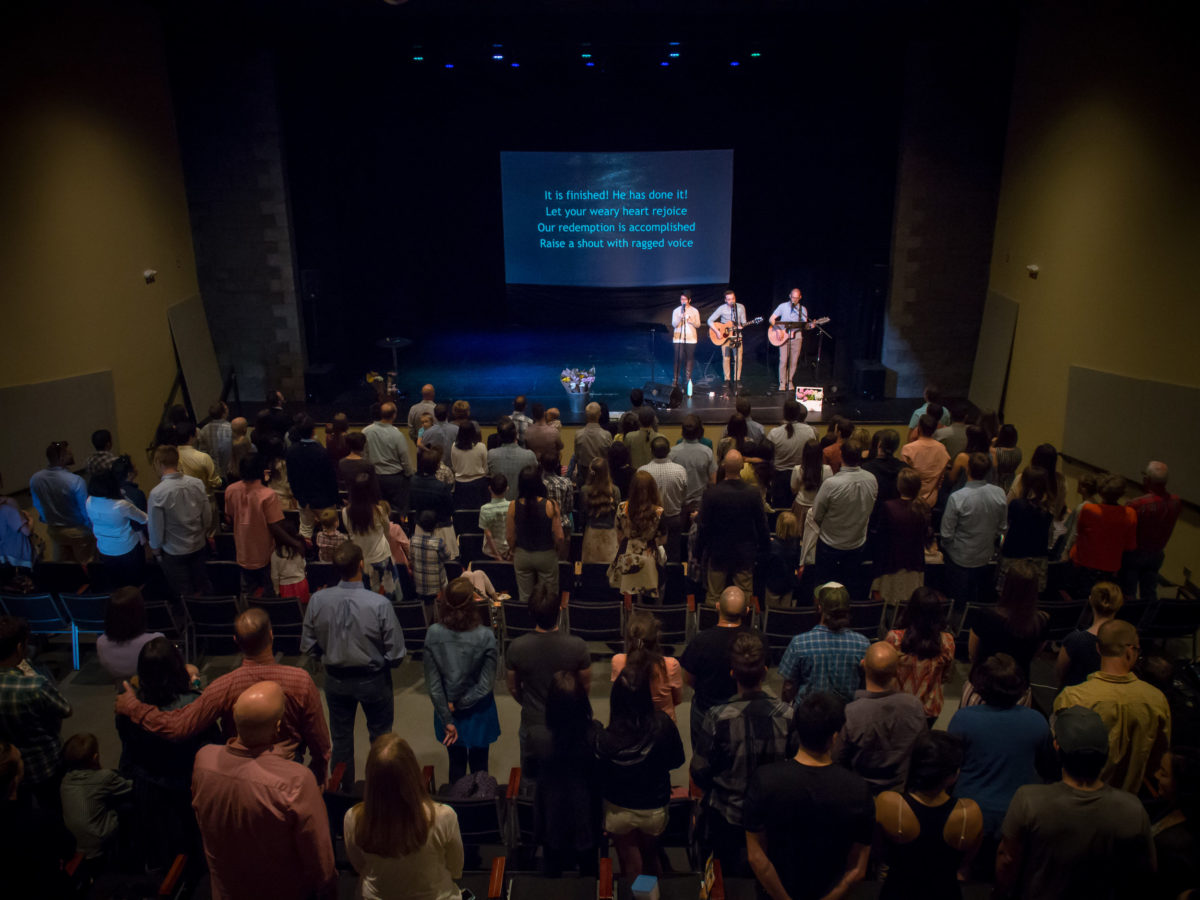God receives glory from fruitfulness and multiplication. God creates trees and plants to bear fruit. And when the seeds fall to the ground, they produce other trees. He does this with animals and with humanity. He gives us the charge to be fruitful, to multiply, and fill the earth. So when my wife gave birth to each of my three children, they were all celebrated. Fruitfulness and multiplication is God’s intention in creation.
So the question is – if that’s what God tells us, what nature tells us, if that’s what our families tells us, shouldn’t the church be the best picture of such fruitfulness? Yet we’re so content for people to stay in our churches all of their lives, living off of us, and never growing up, with no desire to promote healthy offspring. Yet why do we NOT see this as problematic? The New Testament church sees planting churches as normative and natural, while we see it as traumatic or at the very least, unnatural. Why? I believe because we are driven by fear; the fear of church plants and the fear to plant churches.
The fear of church plants is exposed when existing churches feel threatened by new churches.
I live in the San Francisco Bay Area, and we’re desperately in need of new churches. Yet when my mother church sent me into the same city to plant a church, the most common advice I got from other pastors was to plant in a different city. Though research shows us that church planting is by far the most effective means to reach unchurched people in the community, we don’t plant churches. Why? Because we find ourselves feeling threatened when we wrap our identity and self-worth on what we do, rather than who we are in Christ.
We’re trained early to sense self-worth from what we accomplish. Now that doesn’t translate well into the church. Because the church does not exist as a stage to showcase ourselves and our gifts. The church is not ours. The church is the stage by which the glory of Jesus is to be put on full display, and God just happens to use broken people to heal broken people. Yet instead of being delivered from our expectations and allowing God to do the work, we’re overwhelmed with burden. So when a new church comes into town, we feel threatened and become territorial. However the solution is found in the gospel.
The Gospel empowers existing churches to celebrate new churches.
The gospel says, it was through Christ’s performance, not our performance, which makes our adoption possible. So now He accepts us as His own, and that is our primary and supreme identity. The world tells me, “I am what I do.” But the gospel tells me, “I do what I am.” For the Christian, our identity precedes our activity. So our identity is not based on winning, or losing, on a big church, or a small church. God can’t love us any more, and He can’t love us any less. He cannot give us a higher identity than the status of perfection. Through this gospel identity we release our insecurities and our turf wars. As a result, it releases the mission of God into our cities.
The Gospel empowers us to overcome the fear of failure.
The fear of failure also keeps us from planting churches. In the western world, we’re infatuated by size—but so is the church. It’s the large churches that are often celebrated, but what about the faithful church? Why aren’t they celebrated?
Yet the gospel enters in once again and points us to the cross, the very cross that reminds us it’s through submission, not success, that God redeems and restores all things. So the gospel doesn’t dichotomize faithfulness and success. But through the gospel, faithfulness is success. Jesus didn’t say, “Be successful, even to the point of death,” but instead, He said, “Be faithful, even to the point of death and I will give you life as your victor’s crown.” The reality is, there are many people who are called to plant churches, but feel hamstrung by the stress of success. Maybe instead of aiming for success, we should focus on being faithful. Though we cannot control our success, we can make the decision to be faithful. Our faithfulness might not even look successful at first, but through the identity found in Christ, we can rest assured that our future is placed securely in His sovereign power and redemptive plan.
So imagine with me a world where church planting fears are no more. The Bible says, “The fear of man lays a snare, but whoever trusts in the Lord is safe.” I pray we would rest in this security, and unleash the power of the Gospel through inviting church plants and by planting new churches.
This article was originally posted on Christianity Today and has been reposted with author permission.











